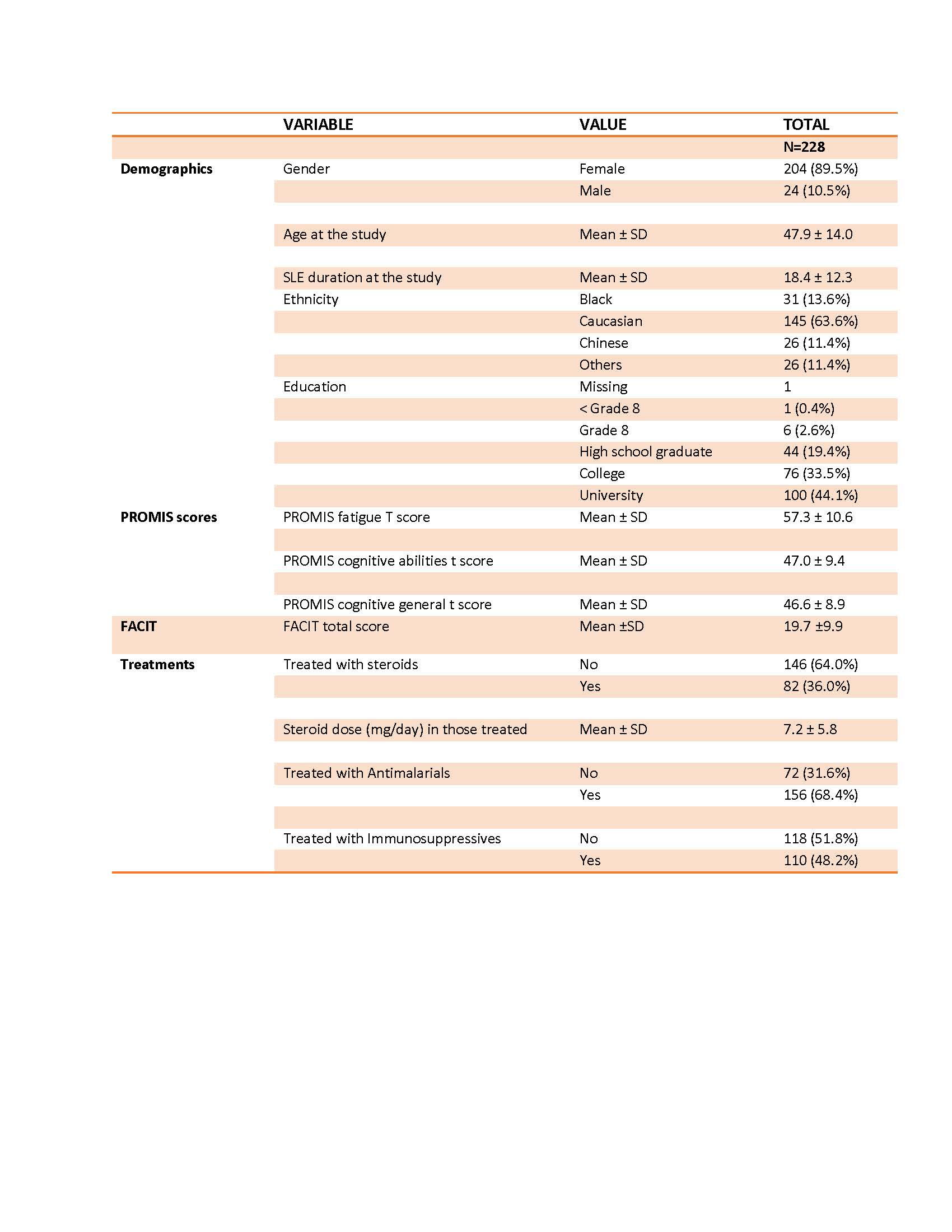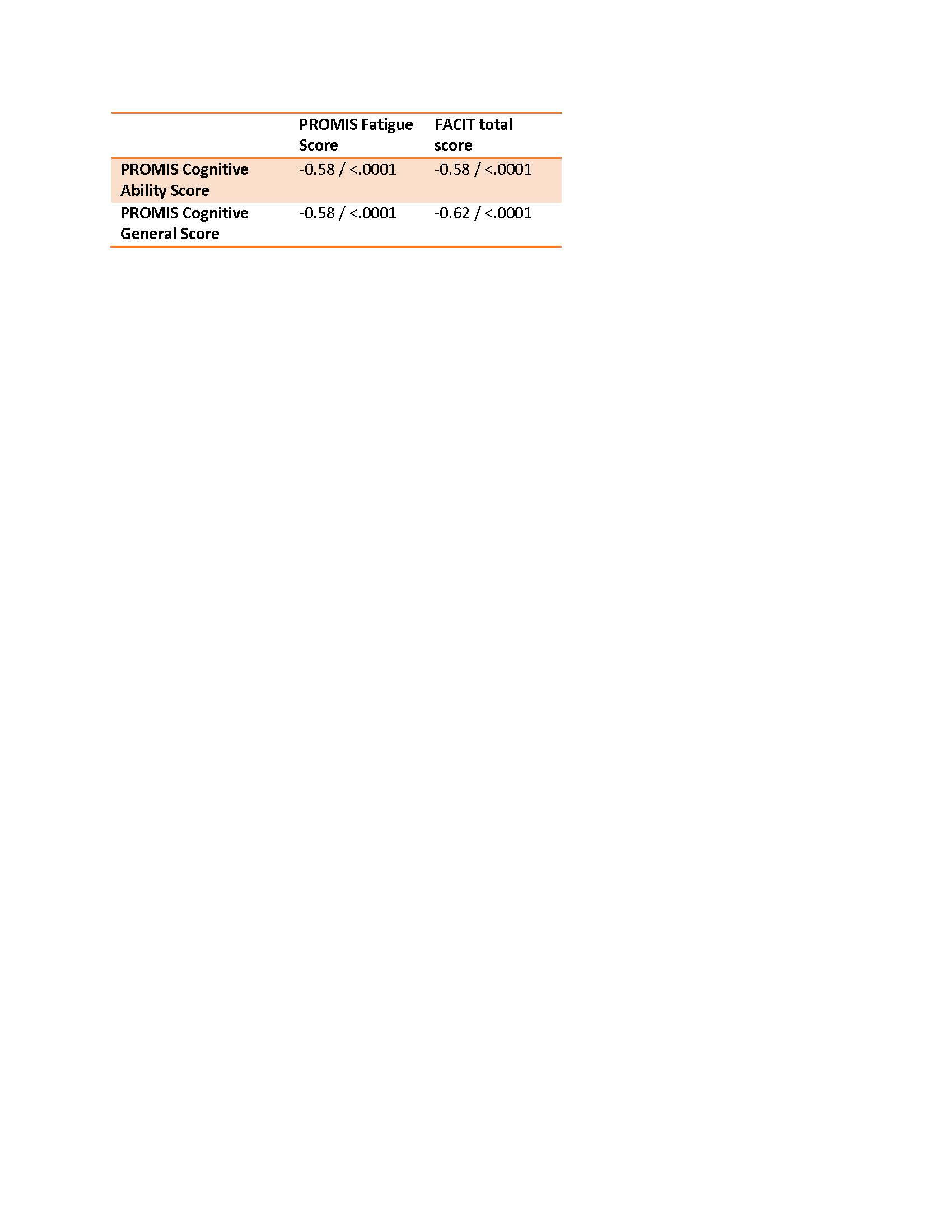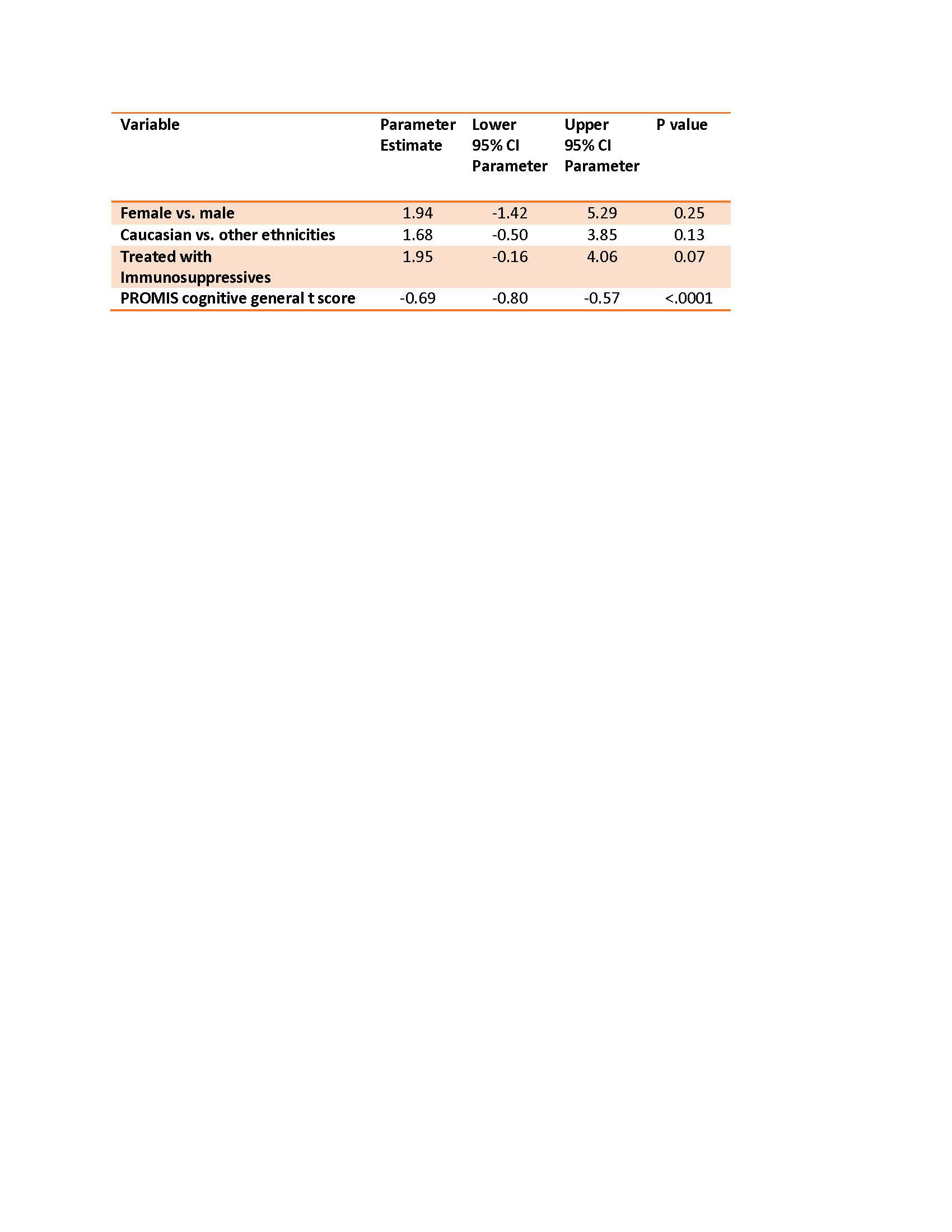Session Information
Date: Sunday, November 13, 2022
Title: SLE – Diagnosis, Manifestations, and Outcomes Poster II: Manifestations
Session Type: Poster Session C
Session Time: 1:00PM-3:00PM
Background/Purpose: Cognitive impairment (CI) is highly prevalent in patients with systemic lupus erythematosus (SLE). Objective prevalence rates are reported as 38% [range: 20% to 80%] and subjective even higher. Additionally, SLE patients frequently identify fatigue as a component of their clinical syndrome. Studies have shown that SLE patients with CI may experience more cognitive fatigue. Therefore, we hypothesized that patients with subjective CI will report more fatigue compared to patients without subjective CI.
Methods: Data on 228 consecutive consenting SLE patients (18 – 65 years old) attending a single centre between July 2018 to July 2020 was analysed. Three PROMIS-CAT (Patient reported outcomes measurement information system – computerized adaptive tests) questionnaires were applied:
– PROMIS Bank v 1.0- Fatigue
– PROMIS Item Bank v 2.0- Cognitive function abilities sub-set
– PROMIS Item Bank v 2.0- Cognitive function general
Additionally, we administered the FACIT questionnaire, which is a 13-item tool that measures an individual’s level of fatigue using a 4-point Likert scale. Descriptive analyses were used to describe the patients’ characteristics. We studied the association between subjective CI and fatigue measures using a Pearson correlation coefficient matrix. The association between subjective CI (PROMIS cognitive function general) and fatigue (FACIT) was further assessed using univariable and multivariable linear regression analyses, with clinical relevant variables, sex, ethnicity and immunosuppressant use included.
Results: Among the 228 participants, 89.5% were females with a mean age of 47.9 ± 14.0 years. The mean disease duration was 18.4 ± 12.3 years (Table 1).
The mean score for PROMIS Fatigue was 57.3±10.6 and the mean scores for PROMIS cognitive abilities and cognitive general were 47.0±9.4 and 46.6±8.9, respectively (indicating that both fatigue and subjective CI is worse in our SLE cohort compared to the general population). Subjective CI function and fatigue correlated with each other, as patients with more subjective CI displayed more fatigue (Table 2). Multivariable regression analysis confirmed a negative relationship in which a higher PROMIS cognitive general score was associated with lower FACIT total score: adjusted parameter estimate -0.69 (95% confidence interval -0.80 to -0.57), p< 0.0001, (Table 3).
Conclusion: Our results showed that there is an association between subjective CI with higher fatigue levels when measured by the PROMIS Fatigue tool and the FACIT questionnaire. This information highlights how SLE affects both fatigue and subjective CI and that these aspects should be targeted in the multifaceted care of SLE patients.
(Pearson correlation coefficient/p value)
total score with cognitive general scores as the main in-dependent variable
To cite this abstract in AMA style:
Lawrence D, Su J, Knight A, Bingham K, Kakvan M, Tartaglia M, Ruttan L, Wither J, Choi M, Appenzeller S, Anderson N, Bonilla D, Katz P, Beaton D, Green R, Touma Z, Barraclough M. Systemic Lupus Erythematosus (SLE) Patients with Cognitive Impairment Experience More Fatigue Compared to Patients Without Impairment [abstract]. Arthritis Rheumatol. 2022; 74 (suppl 9). https://acrabstracts.org/abstract/systemic-lupus-erythematosus-sle-patients-with-cognitive-impairment-experience-more-fatigue-compared-to-patients-without-impairment/. Accessed .« Back to ACR Convergence 2022
ACR Meeting Abstracts - https://acrabstracts.org/abstract/systemic-lupus-erythematosus-sle-patients-with-cognitive-impairment-experience-more-fatigue-compared-to-patients-without-impairment/



